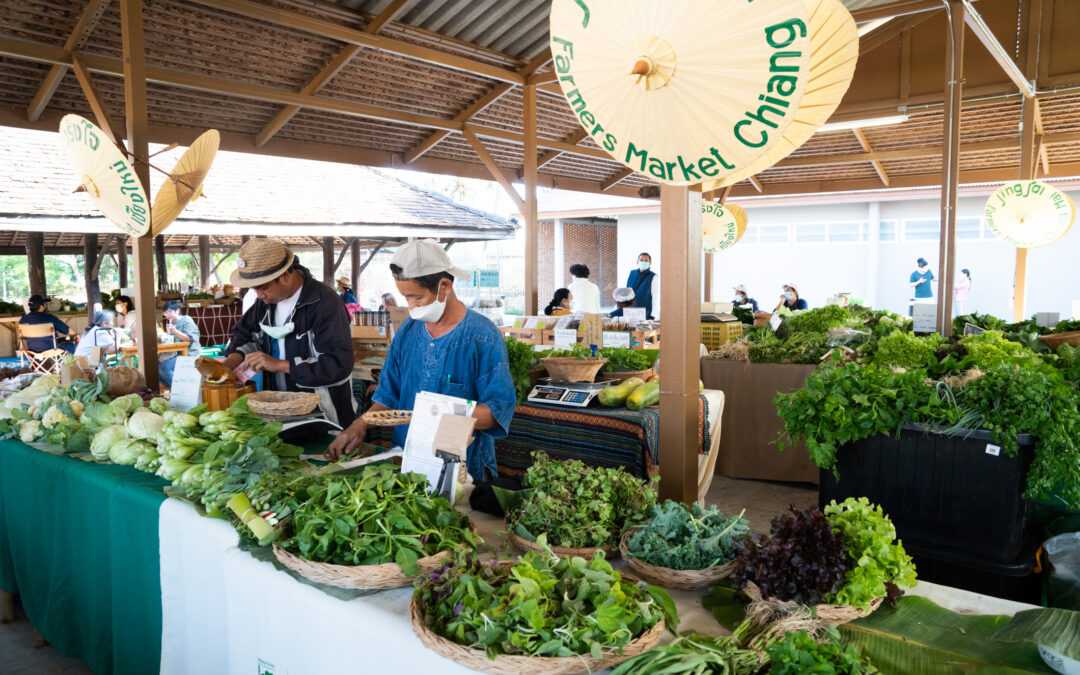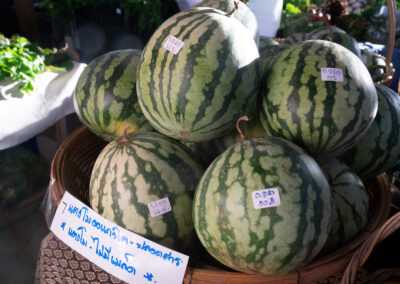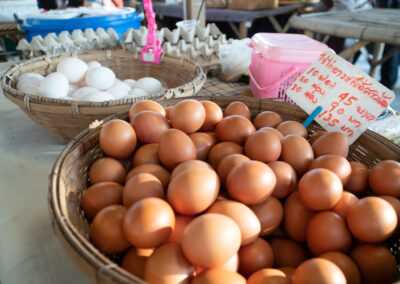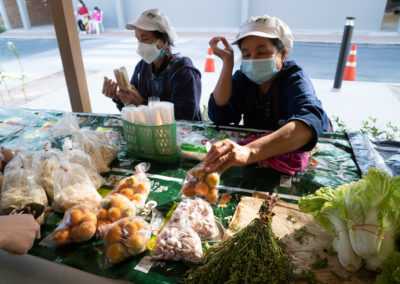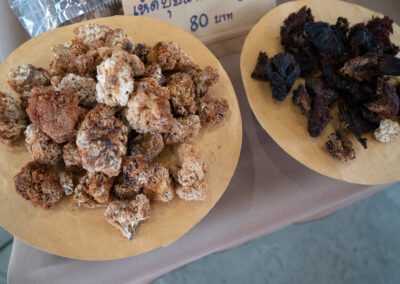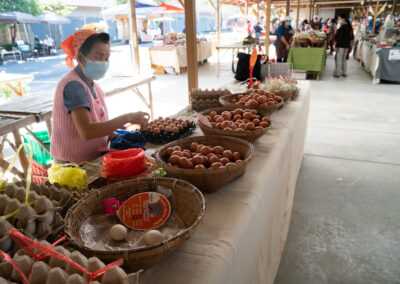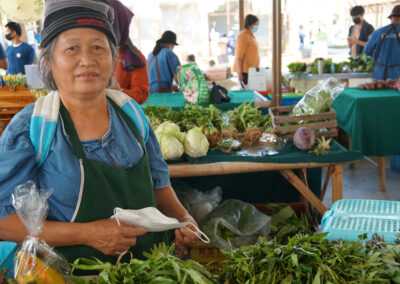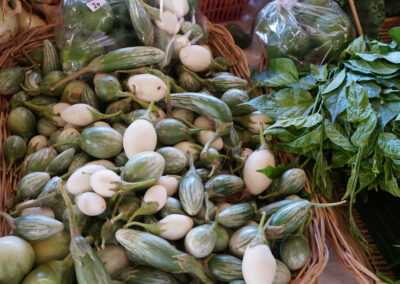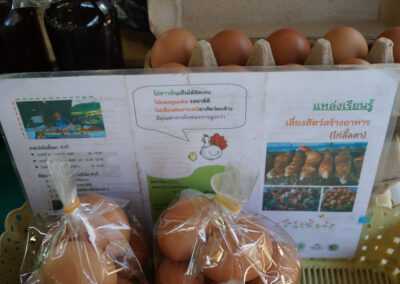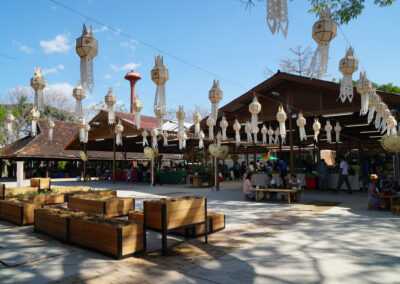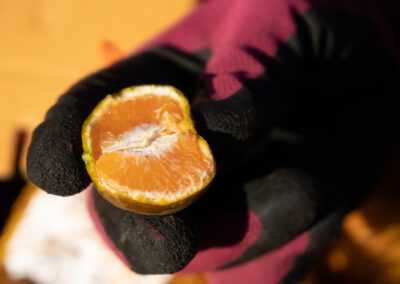© WWF-Thailand
In Thailand, farmers’ markets are on the rise, offering both farmers the possibility to sell their products at fair prices, and consumers a place to purchase organic vegetables directly from producers. Farmers markets play a vital role in building and maintaining local and regional food systems.
Future Food Together has been strengthening farmers’ markets in Thailand since 2018 and can now look at the fruits of the work done.
People are crowding the market aisles with baskets and pulling trolleys, trying to purchase good, fresh vegetables on an early Saturday morning. The smell of coriander and freshly squeezed orange juice is wafting through the air. In one part of the market hall, cooking is already underway; delicious specialities such as eggplant paste and black sesame rice can be found there. The Jing Jai Farmers’ Market was established about 10 years ago. The premises is owned by the retailer Central Group, but had not been used before. This is how a cooperation between the farmers and the company emerged. Now, for a small fee the farmers can offer their products. In return, they have the opportunity to sell their products at fair prices.
The farmers who sell their produce here are mostly of the older generation. They are among the pioneers of Thailand’s organic farming movement. Throughout the country, an increasing number of farmers’ groups have joined forces in recent decades, deciding to move away from conventional to organic farming. When asked why they dared to make the transition, their response is: For the health of the family and the sake of the environment.
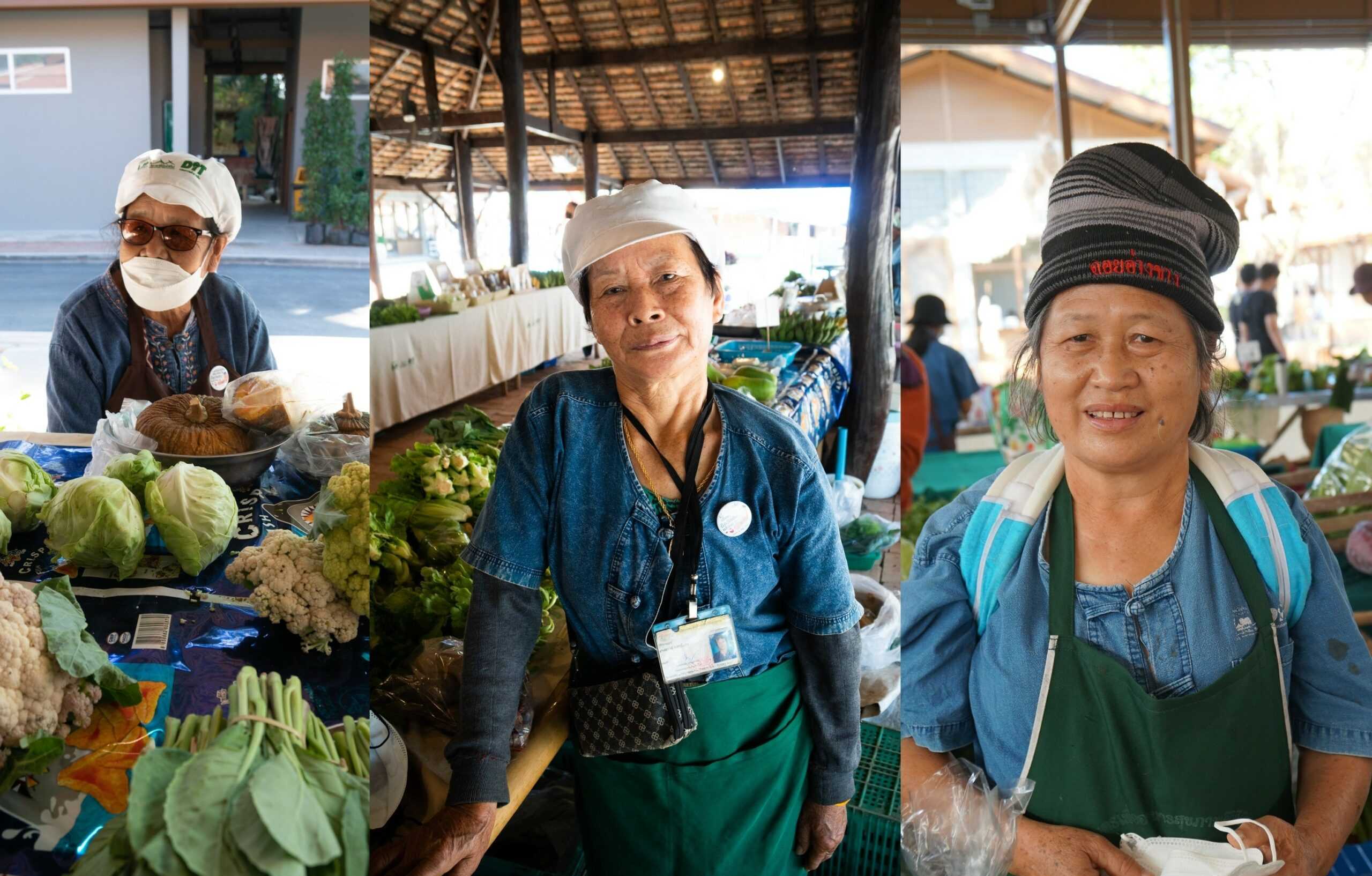
© WWF-Thailand
Farmers’ markets – economic and social benefits
Jing Jai Market offers local farmers the opportunity to sell their farm produce along with other local goods. Customers value the possibility to buy organic quality vegetables such as tomatoes and peppers, as well as seeds. That way, consumers and farmers can meet and exchange ideas. Through such farmers’ markets, consumers are provided with quality food and products, and farmers receive a stable income. Farmers can improve their long-term livelihoods, while also spurring the local economy. In addition, locally produced food carries a smaller carbon footprint as it requires less transportation, as well as through more sustainable agricultural practices such as organic production, integrated pest management, reduced tillage, or on-site composting.
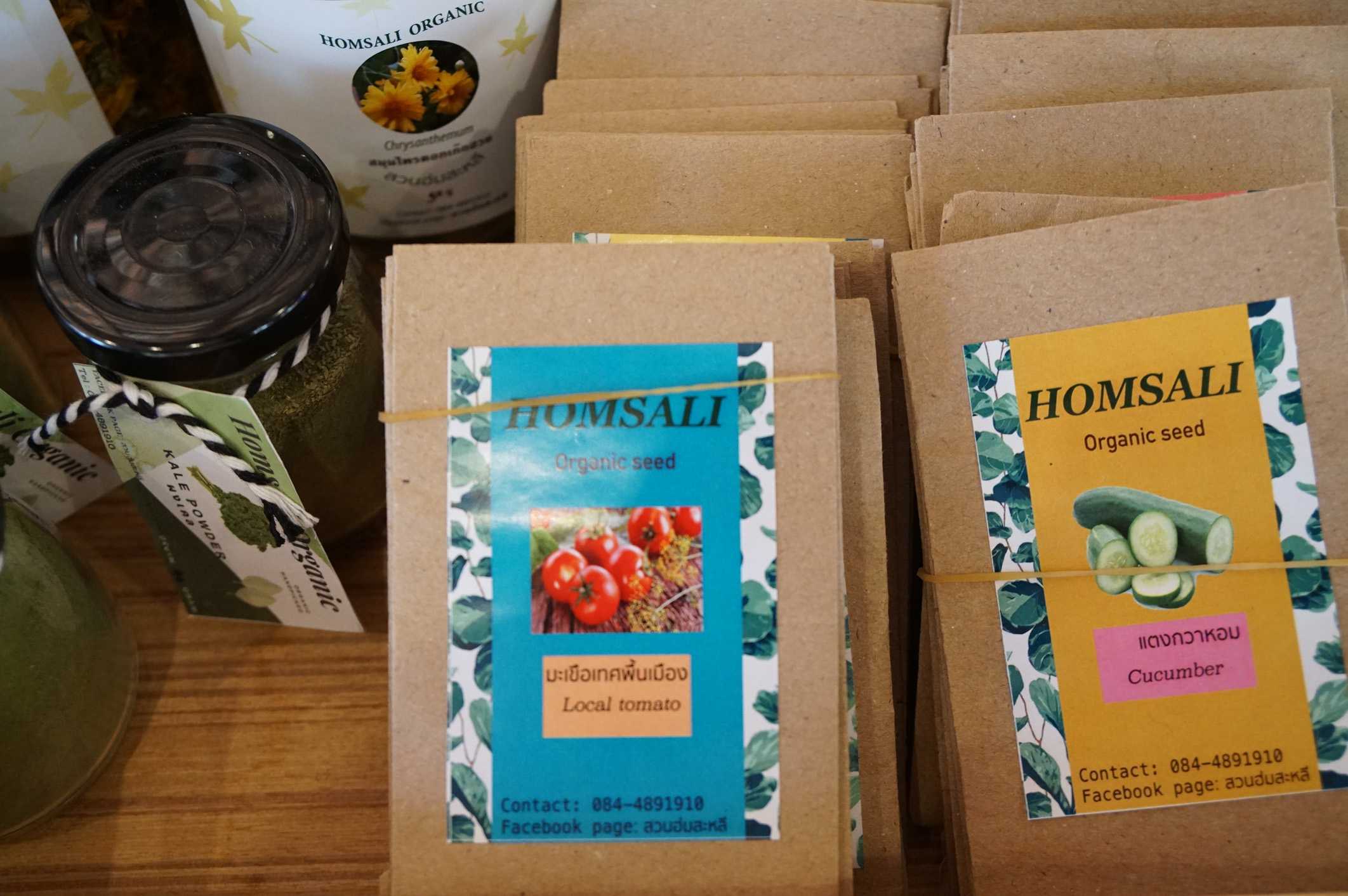
© WWF-Thailand
Farmers' markets create awareness among consumers about the many benefits of growing and eating locally produced food.
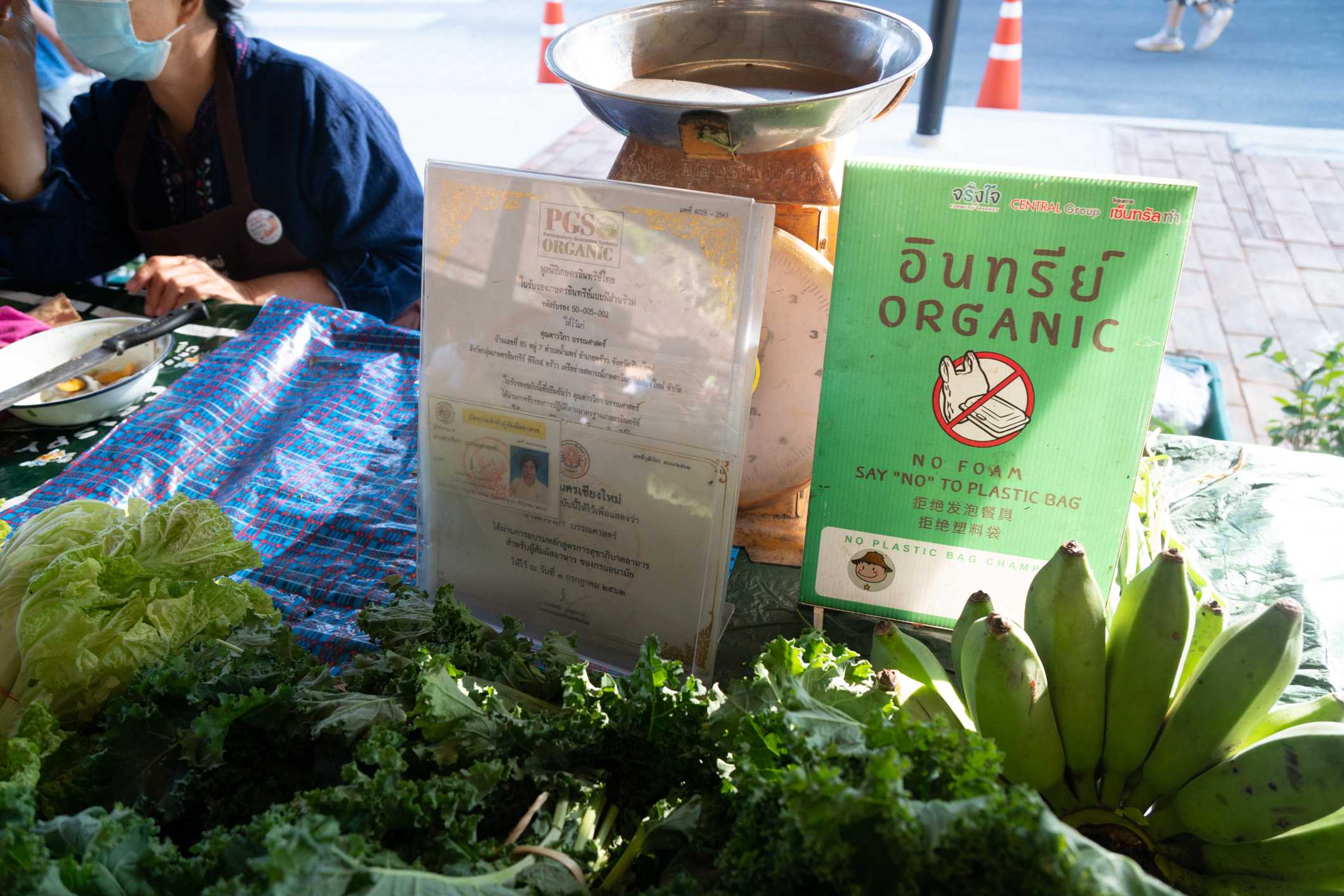
© WWF-Thailand
Tackling Challenges
At the production level, farmers’ concerns about profitability often outweigh environmental aspects, which is why some farmers remain reluctant to transition to more sustainable agricultural practices. Future Food Together has focused on market access and close collaboration with farmer associations, which has been crucial in encouraging more farmers to convert. The project also supported local-specific certification schemes that have enabled a strong sense of ownership on the part of producers. Numerous training courses and seminars have been held in this regard.
Our team in Thailand developed the FLR349 approach to restore watersheds in Northern Thailand around Chiang Mai, Chiang Rai and Nan provinces, which are important areas for biodiversity. The FLR349 funding model advises farmers on how to transition from chemical-intensive farming practices to sustainable agriculture based on the “Three Forests, Four Benefits” principle, which emphasizes the key role of forests as producers of diverse, sustainable food and as carbon sinks to mitigate climate change. A key component of the FLR349 project is to promote the diversity of income sources and production methods as sustainable strategies to secure economic needs and community livelihoods.
Another key focus of Future Food Together was to raise awareness of sustainable food in Thailand since the project began in 2017. The Eat Better campaign has been communicated widely using multiple channels.
Many farms are excluded from selling at the markets in the bigger cities because they live too far away from the market. The FLR349 project is now considering the possibility of building a cold storage room and sharing transport facilities.
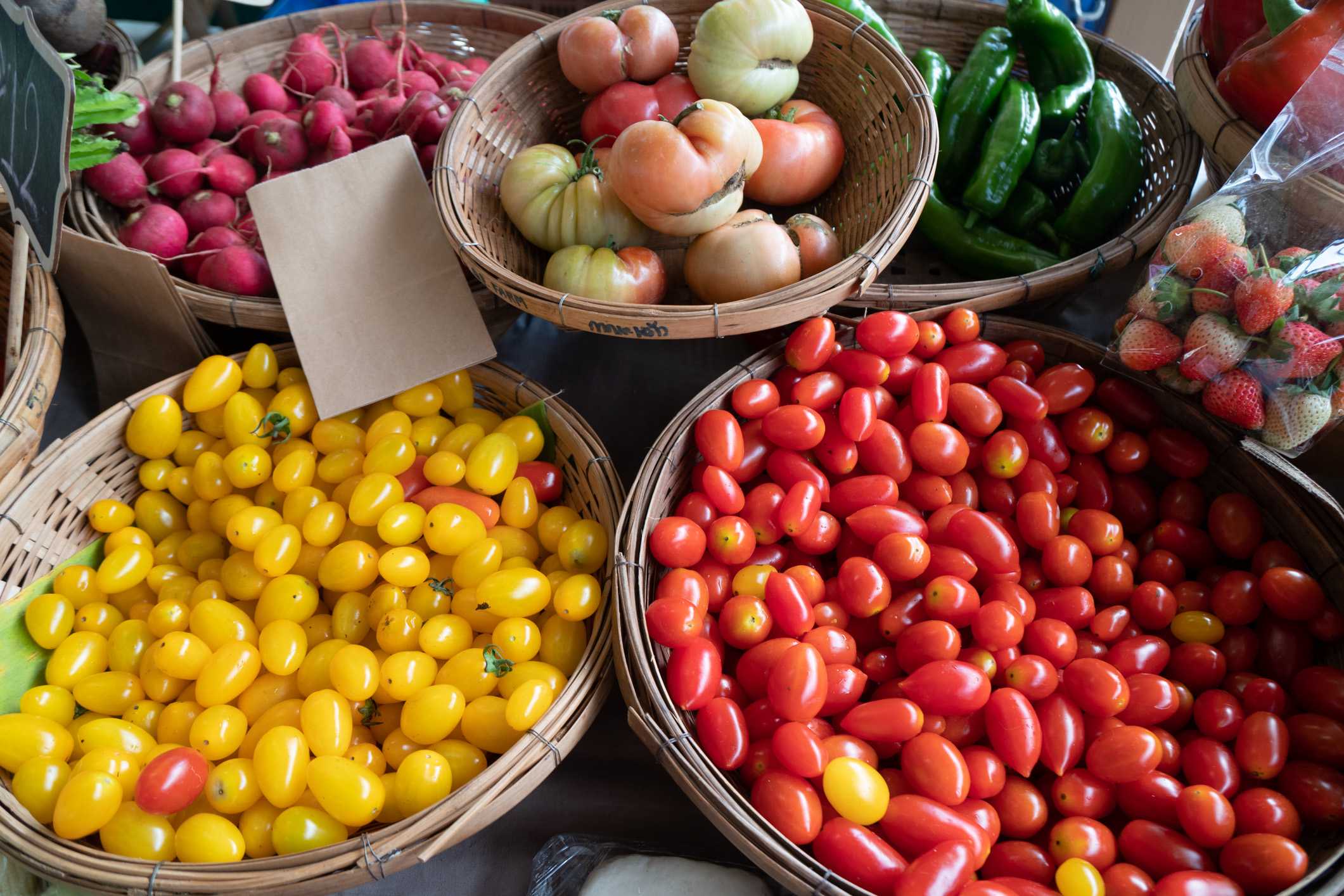
© WWF-Thailand
Find out more about or work in Thailand here:

